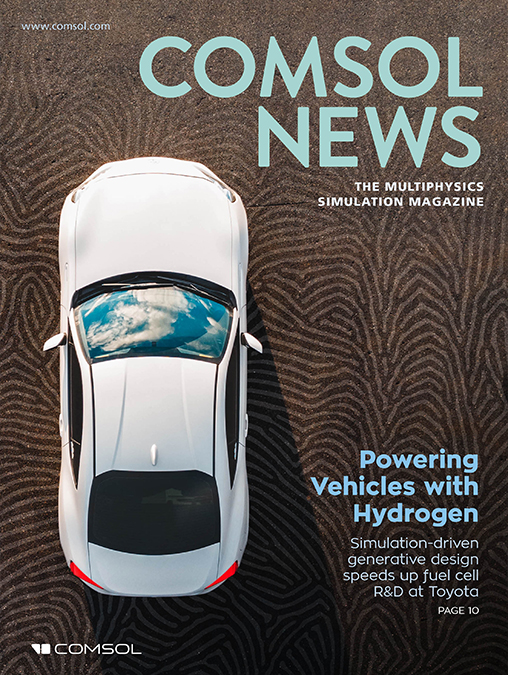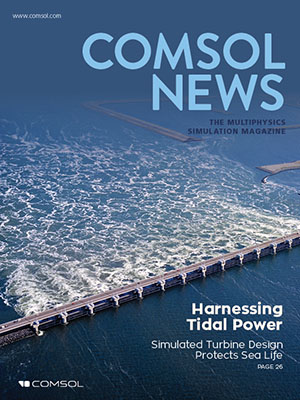The latest stories from COMSOL users are available in COMSOL News and Multiphysics Simulation.
ABB built a digital twin of an electromagnetic flowmeter to mimic an actual flowmeter in a virtual environment. The digital twin, based on multiphysics modeling, enables ABB to improve flowmeter designs and predict device performance under field conditions. Read More
Audio entertainment systems for luxury cars must provide end users with the highest quality of in-car listening experiences. Engineers at HARMAN International use multiphysics simulation to design systems with the entire car in mind, and build applications to streamline their processes. Read More
Power grids need to be properly maintained in order to protect them from system failure. Engineers at ABB use multiphysics simulation to design instrument transformers and sensors that can withstand overvoltages and be used in submersible underground vault applications. Read More
To speed up the development process for a gas-insulated, metal-enclosed switchgear (GIS), while significantly reducing costs, Pinggao Group used COMSOL Multiphysics®. They also built a simulation application that enabled collaboration on the design throughout the organization. Read More
Viega designs residential and commercial radiant heating and cooling systems. By building simulation applications and distributing them to customers, they are able to share the results of their analyses with customers and offer them valuable engineering support. Read More
Electrical engineering students find it hard to visualize the electromagnetics concepts they are learning. To remedy this issue, a professor at Virginia Commonwealth University built specialized simulation applications, distributing them to students as part of the lesson plan. Read More
One of the goals of the Argonne National Laboratory (ANL) is to increase the brightness of synchrotron beams for the Advanced Photon Source particle accelerator. To do so, engineers from RadiaSoft LLC created simulation applications to design optimized synchrotron vacuum chambers. Read More
To design a "smart oven" with solid-state, convection heating, engineers at Illinois Tool Works (ITW) Food Equipment Group turned to multiphysics simulation and specialized applications. The finished product is able to cook food faster and more efficiently than conventional appliances. Read More
Researchers from the University of Campinas and Corning wanted to see how photoelastics and moving boundary effects work together to enhance (or suppress) Brillouin scattering in waveguides, optical fibers, and other nanophotonic structures. To do so, they turned to numerical modeling. Read More
Built by engineers at General Atomics, the DIII-D tokamak needs to achieve temperatures that are 10 times hotter than the core of the Sun to achieve nuclear fusion. To accomplish this, a novel heating system using a helicon antenna that can inject 1 megawatt of RF power is being designed ... Read More













